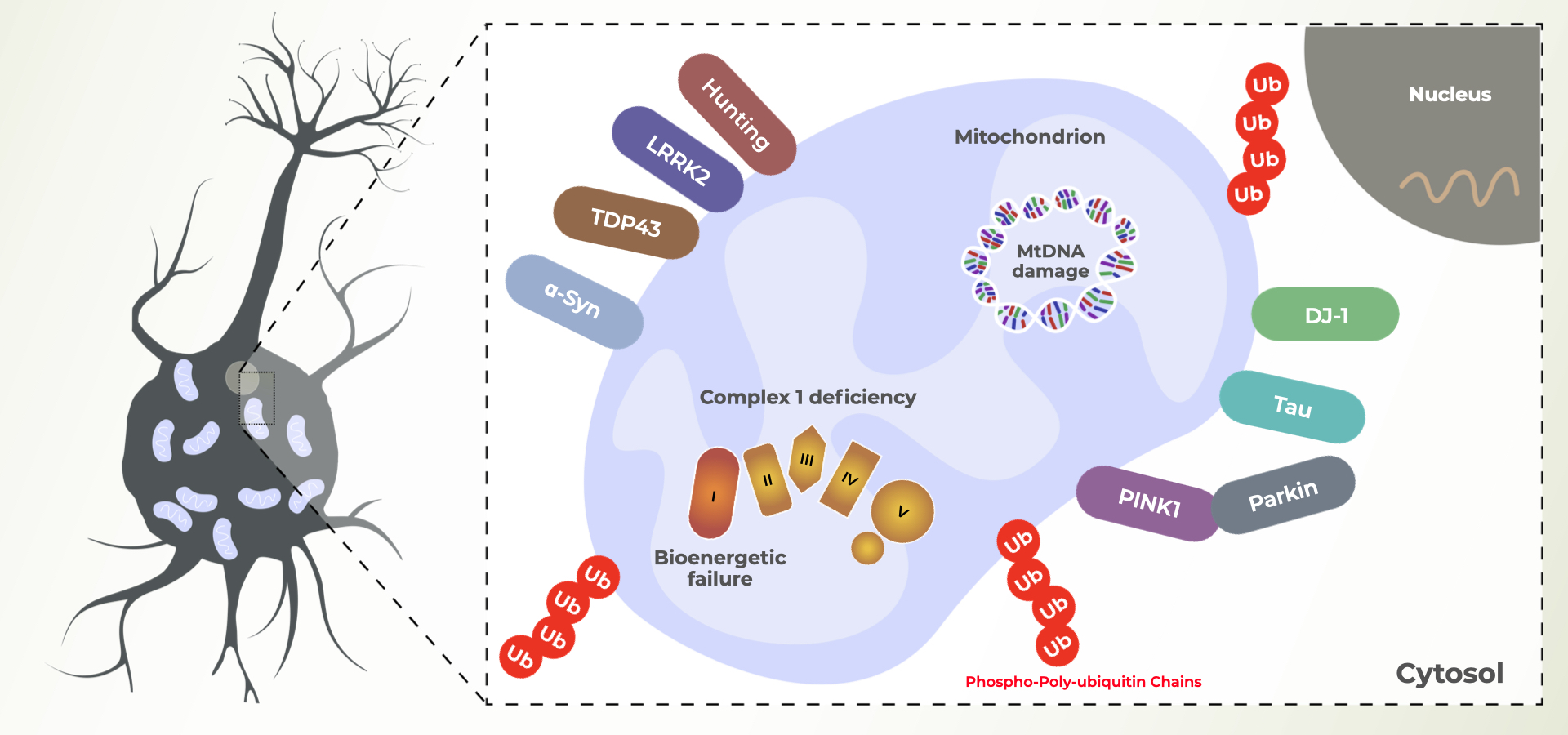Hallmark of Neurodegeneration
The ubiquitin proteasome system (UPS) is the guardian of the cell. It removes damaged proteins and organelles and keeps the intracellular protein traffic running smoothly. In both Parkinson’s Disease (PD) and Alzheimer’s Disease (AD) the accumulation of protein aggregates, such as α-synuclein and tau aggregates depolarize mitochondria. Dysfunctional mitochondria and loss of ATP is the main cause of neuronal cell death. We believe that dysfunction in the UPS is the root cause of neurodegeneration. Novel and groundbreaking therapeutics are emerging by targeting the UPS. LifeSensors is at the forefront of neurodegeneration research and the discovery of neuronal biomarkers.

